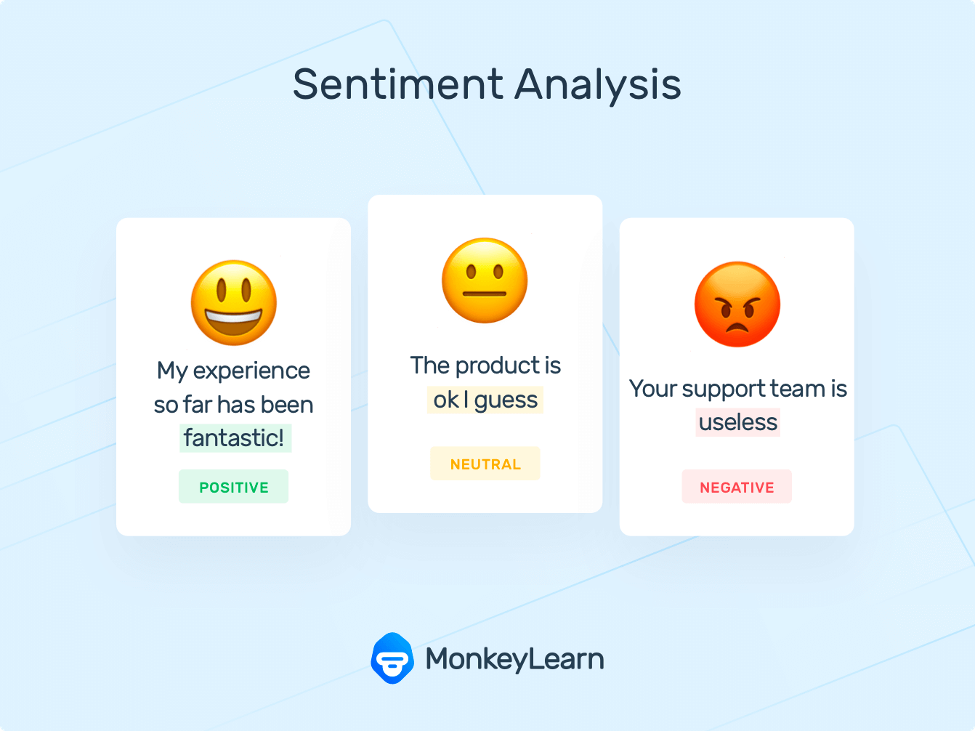6 Ways to use NLP for effective lead management

Natural Language Processing (NLP) is very easy and hard to understand. Basically, it is pretty self-explanatory, like the encoding of natural speech.
We humans can understand one another fine, but machines are still unable to figure out what we're saying. For example, it's easy to figure out how someone is feeling and what they want to say.
It's also not hard to figure out what they didn't say. But computer systems can only understand the words as they are spoken or written.
If anybody sends you a mail with a snarky remark, the device will translate it instead of figuring out what it means. This is a big issue. But NLP is making all of that change. And this is applicable also in the area of lead management, which we'll be covering here.
6 Ways to use NLP for effective lead management
Using NLP technology, computer systems can conveniently mimic how humans understand things. Even though data analysts, as well as linguists, are striving to make technology better, it is already good enough to use in enterprises.
In fact, many organizations have begun to use NLP, the Internet of Things (IoT), and big data to make lead generation easier.
1) Identify your prospects

Among the most important parts of running a business is knowing what your consumers want, and NLP is perfect for this.
As per this guide on ‘how NLP works’, this commonly includes detecting sentiment, machine translation, or spell check - often repetitive but cognitive tasks. Through NLP, computers can accurately apply linguistic definitions to speech or text.
It can find out useful information about all of your possibilities and then help you refine your list while only the most probable leads are left.
NLP helps you understand how prospects act and react on an individual basis. Because of this, it's a much better way for companies to find new leads as compared to other systems they have used so far.
Below are four of the most important ways that NLP can enable you to locate good leads:
a) Social networking
In the online world of today, social networking is now the most convenient method to combine lead magnets by talking to people. On every social networking site, there are quite a variety of data points.
By using these, you could learn a great deal about your leads that haven't been qualified yet, as well as those that might be able to be.
An NLP-based framework can discover a lot about how your business is doing on social sites. By perusing what other people have written, it'll be ready to comprehend their views.
It will be able to tell from the tonality of the Twitter posts whether your effectiveness and efficiency are good or bad.
b) Insights from search engines
Search engines are among the most useful tools for gathering information. By looking at the key phrases that are popular and how well other keywords related to your business are doing, you can find out how your consumers perceive your business.
c) Phone calls
Even though instant emails and messages are easy and common, phone calls exist even now — mostly since they are important.
An NLP framework can write down what you say on the handset and then identify trends and patterns. You also can easily find out who your ideal sales representatives are and how they function differently than others.
d) CRM (customer relationship management)
If you let an NLP system into your CRM system, you can get a lot out of it. It'll look at every piece of information and, based on the lead prerequisites you set, make a list of good leads for you.
Below are a few of the best things about using NLP to find leads:
- Better site searches
- Real-time analysis of information to find trends in search engines and social media
- Easy to tell which leads are the best
2) Automate your sales processes
With machine learning (ML), sales automation lets you take the lead-generating model to another level.
Human-to-human advertising is a fresh breath of air on a planet where sales promotion is becoming increasingly automated and artificial. Below are the most essential things about NLP technology:
a) News and jobs parsing
Media sources and employment portals are great places to find prospects. But so far, there haven't been many good ways to use them.
But soon, with the assistance of NLP innovation, this will start changing. With tools for news and job parsing, leads could be found in these unusual places, giving your business an edge over its competitors.
b) Sentiment analysis

This way, NLP takes the processes of reading voices and texts to a new level. Phrases can mean different things to different people because they are subjective.
Regular text-processing algorithms can't determine what a voice or text sample means. NLP, however, can figure out how happy, angry, or dissatisfied a person speaking or writing is. Knowing how your prospects feel, you can quickly separate the good leads from the bad ones and save resources.
Tonality assessment is much like sentiment evaluation in that it enables an NLP framework to figure out how a prospect might feel about your goods or services.
c) Summary
Using the tech with your channels of communication can help you discover leads, which qualify and shall ultimately close.
There really is no purpose in following up on leads if it sounds as though they aren't interested in you. NLP can make it easy to find these kinds of prospects, which will save the time of your sales reps.
With a platform for sales automation, you can learn much more about your potential leads. This makes it easy and quick to make a personal relationship with them. But because the platform is using NLP and ML, you won't have to spend hours gathering information on your prospects.
The framework will do everything for you. When you know further about your prospects, you can talk to them with a lot more confidence and composure. This makes it easy to communicate with them.
It even makes them more probable to close. You also can definitely qualify leads with the data that is given to you and concentrate on those low-hanging apples.
Via sales automation, you will be able to get rid of old-fashioned "spray-and-pray" advertising strategies and switch to a more consistent and persistent model that is both more efficient and saves you time.
3) Build your brand image
Using subjective data allows your business to learn more about how prospective customers see it. How people talk about your trademark can give you an idea of how well you've positioned your brand.
For instance, such tools can assist your company to figure out how well its brand strategy has worked.
They enable you to comprehend what your current and potential customers are saying about your label by evaluating huge data sets, acquired from platforms such as websites, social channels, and others — to find key phrases, emotions, and more.
4) Plan for content

Your SEM (search engine marketing) strategy and how you place your product go together. Your SEM approach, in turn, relies heavily on how consistently your business can make pertinent, high-quality content for generating good leads.
AI-based paraphraser helps you to create unlimited unique content for your marketing strategy within seconds. It takes your content and replaces specific words with suitable synonyms without affecting the original meaning of the sentence.
Certain tools can also recommend the next sentences in a content piece, based on the statement you typed in first. Long-form material can also be made by several tools as per specific topics.
Generating text with AI has come on in the last few years. Some AI is exceptionally good at creating premium content, which Google wants more and more of, but a software that makes content can't and shouldn't substitute the content team.
Their power to make readers feel something is also a key part of improving its effectiveness and, in turn, its domain authority. Certain tools can aid your content team in creating engaging content; however, a content strategy will always need the human touch.
After all, content that's read by people must be curated by people — to build a proper connection for increased lead generation.
5) Use the voice of the customer (VOC)
VOC is an important part of lead generation that is focused on the client. Using NLP techniques, you can learn from how your clients use your service or product.
You can utilize language metrics to read and revert to customer feedback via voice or chat.
The knowledge you get from NLP techniques for customer service helps your business find and fix problems that keep coming up.
Helping customers during the buying process and after the selling is just part of the picture, though. At this point, you can use tools to learn from the information you've gathered from these interactions.
Upload unorganized data to such tools, which can automatically sync with data entered from mobile apps. They look at unstructured datasets for patterns that can help you make judgments and rapidly give you the insights you require.
6) Finally, acquire your targeted leads
According to the CEO of Sidepost, NLP tools can help your marketing strategy, particularly if you use a targeted method such as account-based marketing (ABM).
Your marketing people can keep an ear to the ground by using NLP tools to listen to discussions about target groups' necessities, troubles, and perhaps about your business.
NLP can help you figure out who to market to and how based on how familiar they are with your brand, how likely they are to buy, etc.
Conclusion
It's important to pay attention to numbers like click-through rates, conversions, etc.
But if you only look at these KPIs (key performance indicators), your sales and marketing efforts will miss out on the important insights that descriptive analysis can give them.
Weigh your plan by taking into account the wealth of information in both written and verbal communication.
Unorganized data sets are a treasure trove of knowledge that you can tap into with NLP tools to learn more about your current and prospective customers.
Author bio
Atreyee Chowdhury works full-time as a Content Manager with a Fortune 1 retail giant. She is passionate about writing and helped many small and medium-scale businesses achieve their content marketing goals with her carefully crafted and compelling content. She loves to read, travel, and experiment with different cuisines in her free time. You can follow her on LinkedIn.




